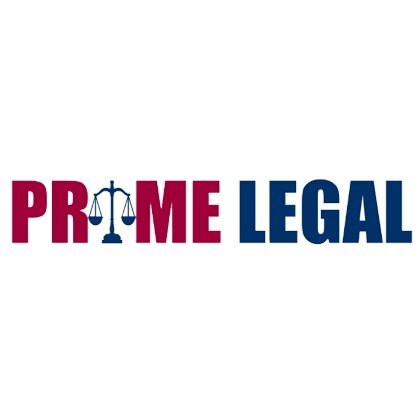Best Real Estate Lawyers in Kathmandu
Share your needs with us, get contacted by law firms.
Free. Takes 2 min.
Free Guide to Hiring a Real Estate Lawyer
List of the best lawyers in Kathmandu, Nepal
About Real Estate Law in Kathmandu, Nepal
Real Estate in Kathmandu, Nepal is governed by a set of laws and regulations that aim to protect the rights of property owners, buyers, and sellers. The real estate sector in Kathmandu is growing rapidly, and having a clear understanding of the legal framework is crucial for anyone involved in property transactions.
Why You May Need a Lawyer
Engaging a lawyer with expertise in real estate law can provide crucial assistance in various situations, including:
1. Property Transactions: Whether buying or selling a property, a lawyer can ensure all legal aspects, such as drafting agreements, reviewing contracts, and conducting due diligence, are properly handled.
2. Property Disputes: In case of disputes related to property ownership, boundaries, tenants, or land use, a lawyer can help navigate the legal process and represent your interests to resolve the matter.
3. Title Review: Assessing the ownership history and validity of a property's title is essential. A lawyer can perform a thorough title review, which helps prevent future legal complications.
4. Lease and Tenancy Matters: When leasing a property, a lawyer can provide guidance on drafting or reviewing lease agreements, ensuring compliance with relevant laws and protecting your rights as a landlord or tenant.
5. Construction and Development: For real estate development projects, legal expertise is valuable in areas such as obtaining necessary permits, compliance with building codes, and resolving construction-related disputes.
Local Laws Overview
Understanding the key aspects of local laws that pertain to real estate in Kathmandu, Nepal is crucial. Some of the important considerations include:
1. Land Act: The Land Act governs issues related to land ownership, transfer, and use. It establishes various rights and restrictions concerning land, such as land reform provisions, leasehold rights, land ceiling limits, and restrictions on foreign ownership.
2. Building Code: The Building Code regulates the construction, renovation, and maintenance of buildings. Compliance with specific standards and obtaining necessary permits is essential to ensure safety and avoid legal complications.
3. Property Rights: Constitutional provisions protect property rights in Nepal. However, it is important to be aware of any restrictions, such as land ceiling limits or limitations on property ownership by non-Nepali citizens.
4. Tenancy Law: The Tenancy Act establishes the rights and obligations of landlords and tenants, including rent control provisions, eviction procedures, and dispute resolution mechanisms.
5. Environment and Land Use Regulations: Various environment and land use regulations control issues related to zoning, environmental impact assessments (EIA), and land use restrictions to promote sustainable development and protect natural resources.
Frequently Asked Questions
Q: Can foreigners buy property in Kathmandu, Nepal?
A: Yes, non-Nepali citizens can own residential land and property in Nepal, subject to certain restrictions. The Land Act outlines the conditions and limitations for foreign ownership of property.
Q: How can I verify the authenticity of a property's title?
A: To verify a property's title, you can request a copy of the Land Ownership Certificate from the Department of Land Revenue. It is advisable to engage a lawyer to conduct a thorough title search.
Q: What are the steps involved in buying a property in Kathmandu?
A: The process of buying a property in Kathmandu typically involves conducting due diligence, drafting and signing a purchase agreement, obtaining necessary permits and clearances, and completing the registration of the property with the concerned authorities.
Q: How can I resolve a property dispute or disagreement?
A: In case of a property dispute or disagreement, it is advisable to first attempt mediation or negotiation. If unsuccessful, the matter can be resolved through the judiciary system by filing a lawsuit or seeking alternative dispute resolution methods.
Q: Are there any restrictions on foreign individuals or entities engaging in real estate development projects in Kathmandu?
A: Foreign individuals or entities are allowed to engage in real estate development projects in Kathmandu, subject to specific regulations and requirements. It is advisable to consult with a lawyer to ensure compliance with applicable laws and procedures.
Additional Resources
For more detailed information and assistance related to real estate law in Kathmandu, Nepal, consider utilizing the following resources:
1. Department of Land Revenue: The official government department responsible for land administration and providing information on land-related matters.
2. Nepal Bar Association: A professional organization representing lawyers in Nepal. Their website can provide a directory of lawyers specialized in real estate law.
3. Ministry of Urban Development: Provides information on urban planning, building codes, and regulations related to real estate development projects in Kathmandu.
Next Steps
If you require legal assistance regarding real estate matters in Kathmandu, Nepal, here's what you can do:
1. Identify the nature of your legal concern and gather the necessary documents and information.
2. Research and identify lawyers or law firms specializing in real estate law in Kathmandu, Nepal.
3. Schedule consultations with potential lawyers to discuss your situation and determine their expertise and suitability.
4. Once you have selected a lawyer, engage their services and provide them with all relevant details regarding your case.
Remember, providing clear and accurate information to your lawyer is essential for them to provide you with effective legal advice and representation.
Lawzana helps you find the best lawyers and law firms in Kathmandu through a curated and pre-screened list of qualified legal professionals. Our platform offers rankings and detailed profiles of attorneys and law firms, allowing you to compare based on practice areas, including Real Estate, experience, and client feedback.
Each profile includes a description of the firm's areas of practice, client reviews, team members and partners, year of establishment, spoken languages, office locations, contact information, social media presence, and any published articles or resources. Most firms on our platform speak English and are experienced in both local and international legal matters.
Get a quote from top-rated law firms in Kathmandu, Nepal — quickly, securely, and without unnecessary hassle.
Disclaimer:
The information provided on this page is for general informational purposes only and does not constitute legal advice. While we strive to ensure the accuracy and relevance of the content, legal information may change over time, and interpretations of the law can vary. You should always consult with a qualified legal professional for advice specific to your situation.
We disclaim all liability for actions taken or not taken based on the content of this page. If you believe any information is incorrect or outdated, please contact us, and we will review and update it where appropriate.
Browse real estate law firms by service in Kathmandu, Nepal
Kathmandu, Nepal Attorneys in related practice areas.

















